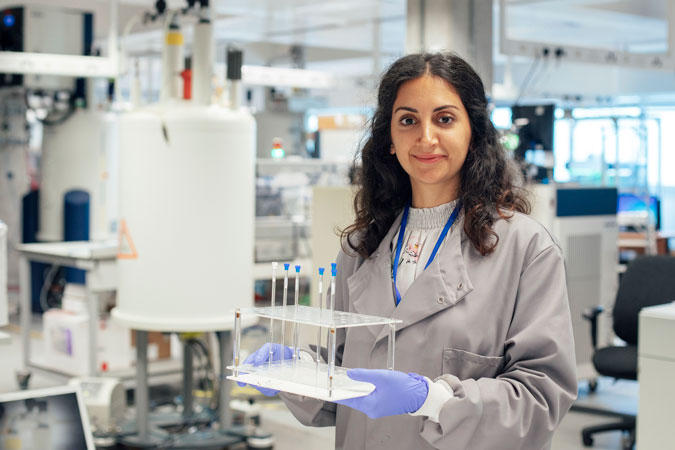Our world-leading cancer prevention research
The research we undertake and fund puts us at the forefront of understanding how lifestyle choices affect cancer risk and survival.
Since 1982, the World Cancer Research Fund network has invested more than £150m in research, focusing on how diet, nutrition, physical activity, and body weight influence cancer prevention and survival.

On this page
Global Cancer Update Programme
At the heart of our research efforts is the Global Cancer Update Programme (CUP Global), which maintains the world’s largest database of cancer prevention research.
Based at Imperial College London, this comprehensive resource contains nearly 12,000 research papers, with contributions from over 140 scientists across 17+ countries.
The programme is unique in its scope and is trusted by oncology experts, researchers, and health professionals worldwide.
Key research focus areas
The CUP Global strategy centres on four crucial areas:
- Cancer incidence: Investigating how lifestyle factors affect cancer risk, with particular attention to different cancer subtypes rather than treating each cancer as a single disease.
- Cancer survivorship: Examining how diet, nutrition, and physical activity impact long-term health after a cancer diagnosis. Recent findings have shown promising results – for example, research has found that physical activity can improve quality of life for breast cancer survivors.
- Cancer mechanisms: Understanding the biological processes that connect lifestyle factors with cancer development and progression.
- Obesity: Studying the relationship between body weight and cancer risk, with the aim of developing specific recommendations for cancer prevention.
Research funding opportunities
World Cancer Research Fund supports researchers worldwide through various grant programmes. These include:
- Regular grants of up to £500,000 for established researchers
- Special programmes for early-career researchers
- Targeted funding for research in cancer prevention and survivorship
- Support for studies investigating modifiable lifestyle factors such as diet, physical activity, sleep, and stress
Recent research insights
Recent studies from the programme have yielded important findings.
For colorectal cancer survivors, evidence suggests that a physically active lifestyle and a diet rich in plant-based foods, wholegrains, and coffee – while avoiding sugary drinks – may improve outcomes and overall survival.
For breast cancer survivors, maintaining a healthy weight after diagnosis has been shown to be particularly important for survival.
Practical impact
The research findings directly inform our Cancer Prevention Recommendations, ensuring that everyone has access to the most current, evidence-based guidance on reducing cancer risk.
We’re particularly focused on making our research practical and accessible, working to develop specific guidance for different populations, including cancer survivors and people at different life stages.
Future direction
We’re committed to expanding our research scope to address gaps in current knowledge, including:
- Developing more targeted recommendations for specific population groups
- Understanding the impact of dietary patterns on cancer risk
- Including more research from low- and middle-income countries
- Increasing public involvement in research priorities
- Using new technologies to keep evidence current and accessible
This research work is supported primarily through public donations and conducted in partnership with the World Cancer Research Fund network charities in the UK, Netherlands, and the United States.
